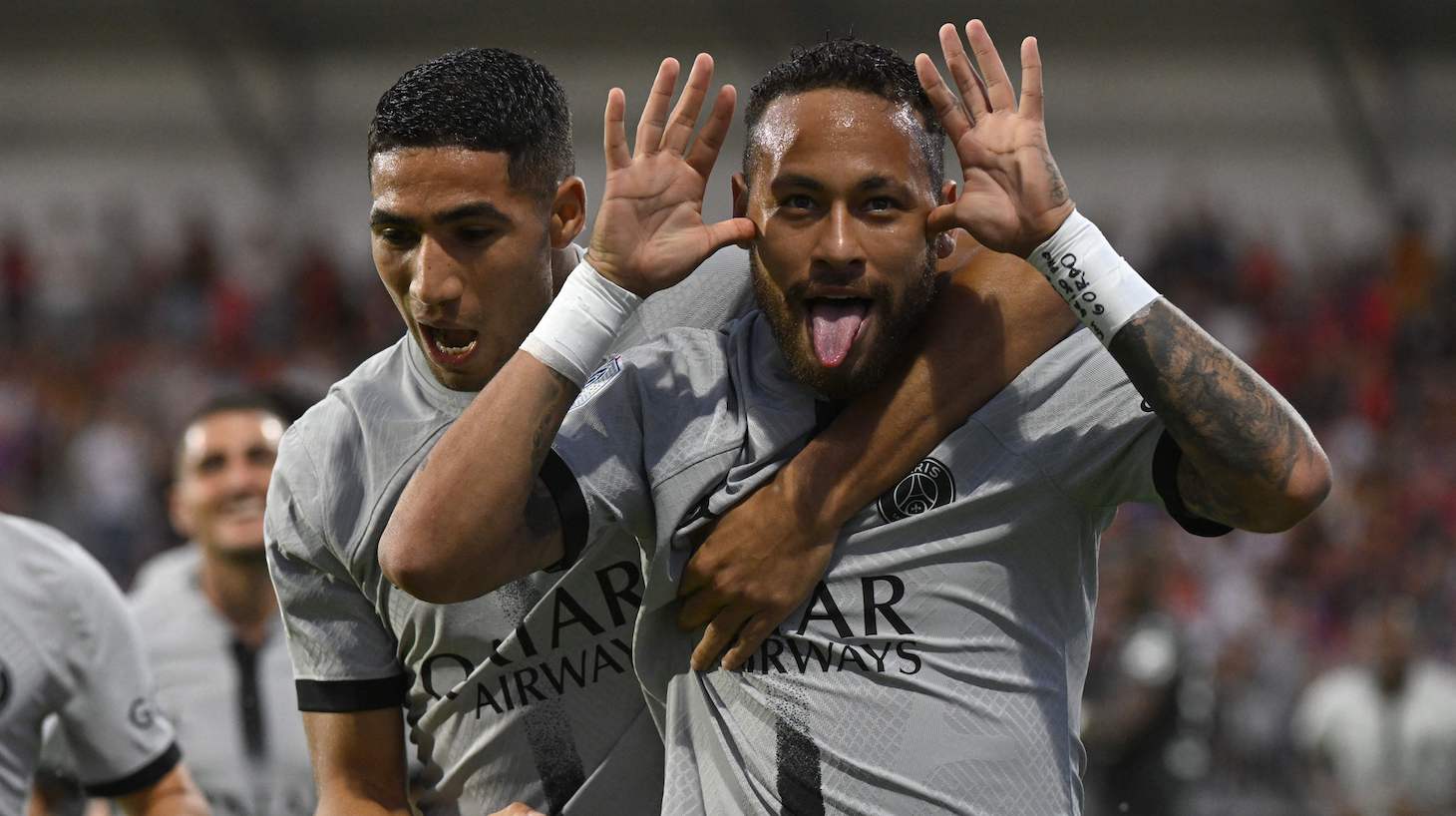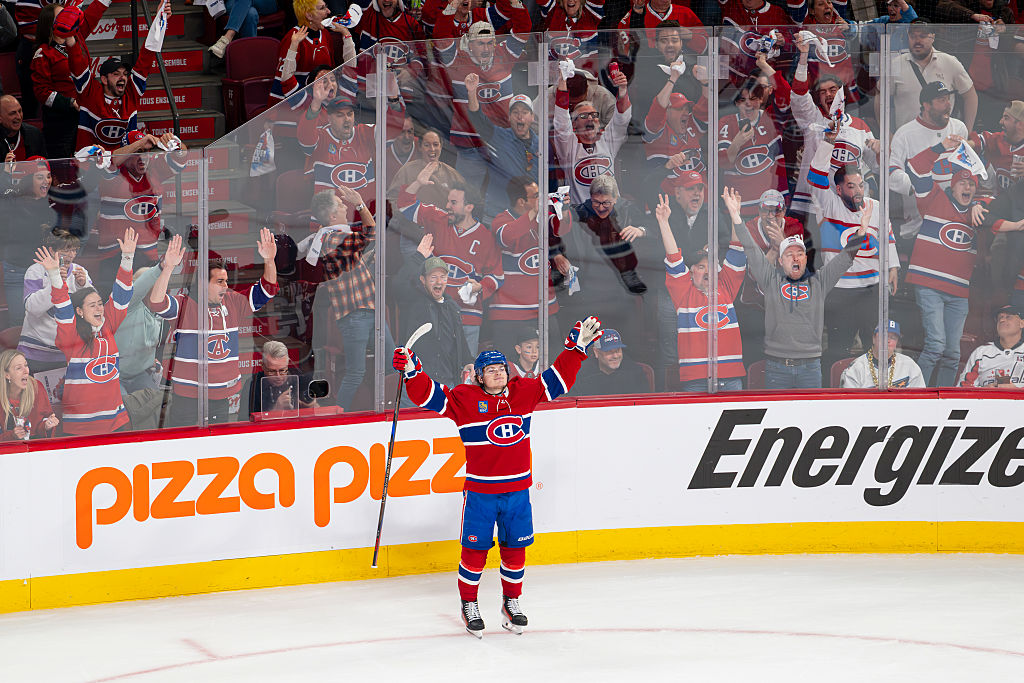I should mention here at the start that none of this matters. Paris Saint-Germain handily won its season-opening match, and it doesn't matter. The match was in Ligue 1, the most consistently disparaged of the five big European leagues, a competition PSG will without question be crowned champion of this season, which makes it a competition that doesn't matter. PSG's opponent was one of the worst teams in the division, a club that doesn't matter. The match featured Lionel Messi and Neymar but not the other member of the team's famous attacking triumvirate, Kylian Mbappé, so the match doesn't matter. Because of the status of French domestic soccer, the exigencies created by PSG's pharaonic spending, and the weight of the club's embarrassing recent history in the Champions League, from now until next spring when the European knockout rounds start up, nothing that happens at PSG will really matter in the eyes of the broader soccer world.
But while the events inside Paris's Parc des Princes will remain more or less invisible until the UCL quarterfinals, those ignored episodes will indeed condition what the team will or won't look like come the spring. So at least in that sense, they do matter. And if you're willing to sit through 90 minutes of irrelevance, what you'll find at PSG promises to be pretty damn interesting.
PSG's long path to the UCL knockouts began on Saturday, when the Parisians visited Clermont Foot. Along with being the first competitive match of the new season, it was also the debut of new manager Christophe Galtier. Galtier, alongside Luís Campos, the club's new boardroom architect, was brought in to inaugurate a new era in Paris, one no longer focused on "bling-bling" but rather on winning alone. It's obviously too soon to say anything definitive, but the project has gotten off to an encouraging start.
In spite of all the talk about a no-frills revolution, almost all the players involved in PSG's 5–0 win on Saturday were familiar faces. Vitinha, a 22-year-old Portuguese midfielder signed from Porto this summer, was the only debutant in PSG's starting lineup. Yet even without a roster overhaul, there was much that felt different.
PSG played in an earnest 3-4-3 formation, jettisoning last season's misshapen and dysfunctional 3-4-3/4-3-3 hybrid in favor of something more orthodox. The benefits were evident. With three actual central defenders (last season's formational weirdness often asked midfielder Danilo Pereira to play as a third center back while in possession and a third midfielder out of possession) backing up the other lines, PSG felt a lot more compact and protected than if often did last season, when even the lowliest Ligue 1 opponents were never too far from a dangerous jaunt into the PSG penalty box. It also allowed PSG's wing backs to both defend and attack high up the pitch, improving the Parisian press in defense and giving the group a constant, pitch-stretching threat out wide on offense, which opens up room in the middle for the team's two geniuses to sharpen their knives. Probably PSG's biggest improvement could be found there, in the center of attack, where, after spending many matches last season separated by a bewilderingly large distance between one another on opposite flanks, Neymar and Messi could constantly create and combine while close together.
The result was unsurprisingly fantastic. Neymar was the star of the show, scoring the game's opening goal and later playing assist man for three other goals. Messi managed one assist and twice found the back of the net himself, including once with the first overhead kick goal of his entire career:
MESSI 😳 STOP THAT! 😍#CF63PSG | #Ligue1 pic.twitter.com/Q8fu1JfWRN
— beIN SPORTS USA (@beINSPORTSUSA) August 6, 2022
As is usually the case with these two South Americans, you can't summarize the full extent of their splendor by only looking at their admittedly gaudy stats. Messi looked fit, sharp, and motivated—something that wasn't often the case last year, when it seemed to take him almost half the season to get over the sadness of his exit from Barcelona and the happiness of his success at the Copa América, at which point he could finally bring himself to care about his new club team. Neymar too looked fit, sharp, and motivated—and the sheer ingenuity of many of his touches and passes, the little twists of style and creativity he'd adorn what could've been routine actions, imbuing each of them with a different energy and intent and effect, proved yet again that when Neymar is healthy and in form, there is no one better.
Galtier, who led Lille to a stunning Ligue 1 title over his current employers just two seasons ago, is clearly a very good manager, though there was some concern whether his preference for cautious, defense-minded soccer would make him a good fit at a big club that has to solve more games by scoring goals than by preventing them. So far, the coach has shown an impressive adaptability. A healthy Sergio Ramos could transform PSG's defense and also its attack after his almost entirely lost 2021–22 season. Vitinha has been great, coupling elite passing ability with an impressive mobility and willingness to plug gaps, which could make him the perfect compliment to Marco Verratti in midfield.
Ramos, Vitinha, and the more ordered 3-4-3 formation shows early promise at addressing PSG's main weakness last season, its defensive frailty, while also improving its disjointed attack by uniting the team's two biggest stars. And though the real work of building PSG won't truly begin until Kylian Mbappé returns from injury and continues the work of finding harmony with Neymar and Messi—work that only really began last season after the season was already essentially over—there is reason to believe that what we've already seen from PSG could very well be maintained and even enhanced with the Frenchman back in the fold. It's still a work in progress, but the final product this time has a chance to be as spectacular as everyone imagined when PSG assembled the core of this roster last summer. By the time the Champions League knockouts come around—or, put another way, by the time things really matter once again—PSG should be ready for its moment.
But therein lies the tragedy (to use too strong of a term) of PSG. Soccer, unlike certain other sports, can't be neatly summarized by results and records and titles won or lost. Rather, it's a game defined by moments. At no time is this clearer than when watching either Messi or Neymar. It's the magic they create amidst the drudgery of a soccer game that makes them so special, the way they might turn a thrown hammer of a pass into a pillow with a single control, or an overhit pass into an overhead kick and a goal. It's about what Messi and Neymar actually do within all 50-some games of the season, not about how many trophies they're rewarded with by end. But at PSG, what should matter most is precisely what doesn't matter at all, at least not in the grand scheme of the sport's collective consciousness.
Thankfully, there's a solution for anyone who doesn't wish to concede the very best thing about the sport to whatever does or doesn't get headlines. All you need to do is turn a PSG game, watch this fit, sharp, and motivated team play, see Neymar's and Messi's brilliance and their smiles, and enjoy.






